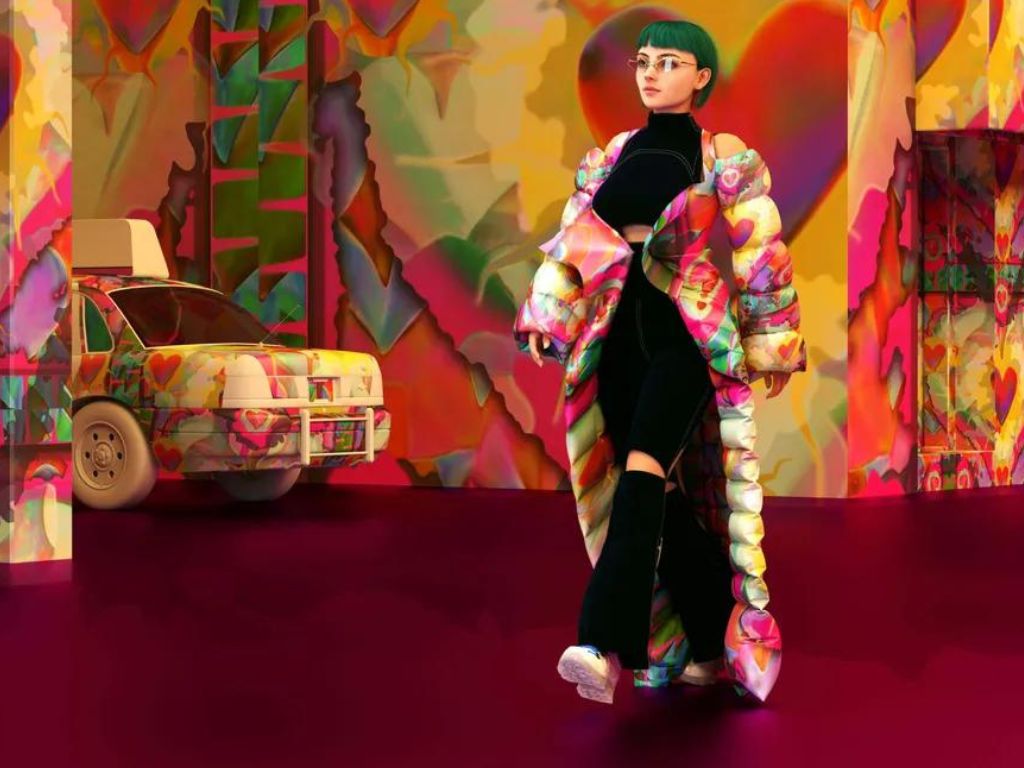Blockchain and the digital commerce world are always looking to create various opportunities for global investment while taking advantage of the current metaverse pivot that a lot of the big tech companies are taking. This includes the combination of art and virtual with the various companies across many industries looking to create and sell NFTs (Non-Fungible Tokens). So what exactly are NFTs and why should we pay attention to them? Here is our breakdown of what could be the next (or current) big tech move.
Does the acronym ‘NFT’ mean anything to you?
Earlier this year, everyone and their meddling aunties could not stop talking about NFTs and the fact that many people were either shelling out big bucks buying NFTs or cashing in by selling them. In fact, despite some hesitancy about NFTs in India, many heavy hitters have gotten into the market (but more on that later).
All of this sounds lovely, right?
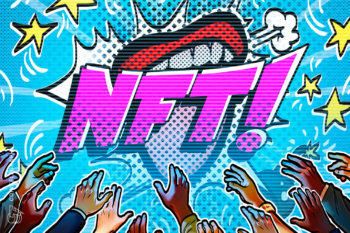
So, what are NFTs?
But first, the question we’ve all been asking ourselves is, what exactly is an NFT?
If you were too ashamed to ask what it was and simply nodded and smiled, here’s a quick rundown of NFTs that will get you up to speed:
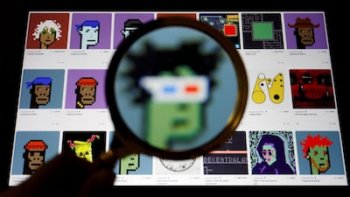
First things first, ‘NFT’ stands for non-fungible tokens, which originally appeared in 2014, according to Forbes.
“An NFT is a digital asset that represents real-world objects like art, music, in-game items and videos. They are bought and sold online, frequently with cryptocurrency, and they are generally encoded with the same underlying software as many cryptos,” explains Forbes.
Typically, NFTs are unique, not only because they are rarely duplicated, but because they are each assigned “…identifying codes,” notes Forbes.
Now you may be asking yourself, how can an intangible asset, even if it’s unique, have value?
Well friends, brace yourselves as Forbes reports “the market for NFTs was worth a staggering $15.70 billion USD in 2021 alone, and is expected to reach $122 billion USD by 2028.”
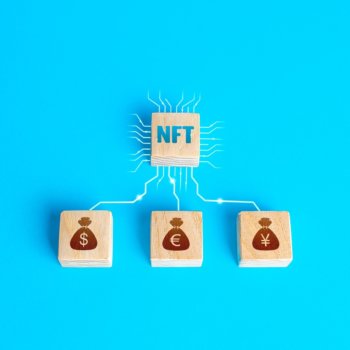
To date, both in India and in many other countries around the world, there’s very little regulation surrounding the valuation of an NFT. This allows the artist or creator of the NFT to use their discretion when attaching a price tag to the NFT. However, there are some considerations that contribute to the cost of an NFT. For example, Business Today notes how unique an NFT can drive the cost of the piece, along with how popular the creator is. As well, Business Today explains that if there are tangible copies of an NFT, such as a painting, then those NFTs may be “…priced anywhere between 1-10 per cent of the physical art piece. The utility of an NFT, which comes from its real application, in either physical or digital worlds [is crucial]. This characteristic of NFTs gives them immediate value, which accrues over time depending on the popularity of the underlying project.”
Benefits and drawbacks of NFTs
As with anything in life, there are perks and downsides. According to Appy Pie, here are some of the benefits you can expect when dealing with NFTs:
- “NFTs…allow individuals to own a piece of intellectual property.” This is a safer form of ownership as it’s part of “…a blockchain,” which makes it harder to infringe on another person’s work. As well, ownership creates the possibility of greater economic growth for individuals.
- You can leverage your NFT “…to provide insurance for objects that have value [as] a product can be embedded with a smart contract on the blockchain.” This ‘smart contract’ can then be used as proof of ownership if you ever need to submit an insurance claim.
- NFTs are meant to be unique. Therefore, not only can they be used to create rare “collectibles” digitally, but they can also bring “…real-life assets” to the blockchain that can then be purchased.
- Online voting via NFT is a thing! Apparently, “…ERC-721 tokens can be created to represent voting rights and they can be traded on an exchange. The votes can be counted on the blockchain…” making the voting process more accessible and easier to understand.
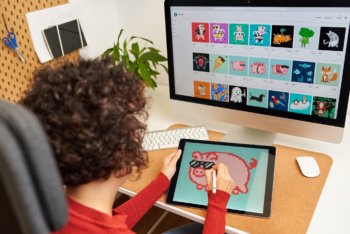
Meanwhile, here are some of the drawbacks of NFTs reported by Investopedia:
- The limited regulation surrounding NFTs, coupled with the lack of solid data and excitement about them gives way for “…the values of tokenized assets to be inflated and volatile.”
- As it turns out, NFTs are not necessarily environmentally friendly. In fact, “a single NFT transaction requires as much electricity as the average home for about a day and a half.”
- In order to make buy NFTs from blockchains, such as Ethereum, you have to “…own [their] native currency,” which can tie up your funds.

That said, while these are generally the benefits and drawbacks where NFTs are concerned, because of the limited rules surrounding them in places like India and more, it may be in your best interest to thoroughly do your homework or contact a professional for more specific advice.
NFT’s in India:
There has been some hesitancy in India about NFTs, however, the tides are changing. In fact, The Hindu Business Lines noted that “experts say the NFT market is still small and very niche in nature, but investor interest is definitely picking up.” Although there are other factors involved, the uptake in the appeal of NFTs has certainly been driven by some big names getting into the market in various ways, such as:
- Prinseps: Prinseps, which is run out of Mumbai, is not your average auction house. Buyers can make purchases directly online or participate in auctions of luxury goods, including art, jewels, books, and more. What’s notable about this auction house is that they “…showcased artworks by Indian artist Gobardhan Ash during the first-ever NFT auction in India.”
- Artiana: Artiana is based in Dubai and engages in both online and in-person auctions, along with private sales of art, jewelry, designer good, and much more. Earlier this year, Artiana was the first business of its kind in Dubai to “host… The Mythical Metaverse, an exhibition and sale of NFTs minted from 40 works by Sakti Burman,” explained Jing Culture & Commerce.
- Amitabh Bachchan: It’s no surprise that the infamous Amitabh Bachchan got involved in the NFT market. Back in November 2021, India Today reported the star launched a “…collectable series included his father’s famous poem “Madhushala,” autographed vintage posters of himself, along with his other works,” which flew off the virtual shelves for $966,000 USD.
- Salman Khan: Have you heard of BollyCoin? According to BollyCoin, they are seeking to “…build the bridge between Bollywood and the blockchain, starting with NFTs.” The company “…partnered with…Salman Khan Films… and Salman Khan” to release “…an exclusive NFT marketplace and the collection of NFTs from the Dabangg franchise,” highlights Lifestyle Asia.
- Rana Daggubati: Iknoz was co-founded by Rana Daggubati, Abinav Kalidindi, and Prasad Vanga with the goal of “…bringing culture’s biggest icons and iconic IP into the Metaverse through NFTs.” It’ll be exciting to see what the company does next!
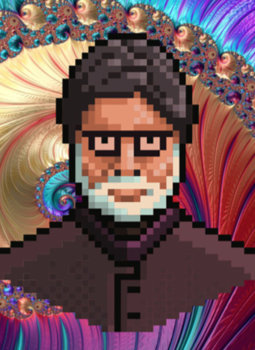
What does the future look like in India?
At this time, India’s government is working on how to govern virtual transactions, such as NFTs. For instance, “the government’s draft cryptocurrency bill, which has got listed in the ongoing session of the Parliament, may ban or come up with a definition for virtual coins, determining how they will be regulated and taxed. But until any clarity comes from the government the future looks blurred, as NFTs are bought and sold through virtual tokens,” describes Business Today.
In the meantime, Business Today highlights that “The Blockchain and Crypto Assets Council (BACC), a part of the Internet and Mobile Association of India (IAMAI), is, for now, better equipped to devise guidelines.”
That said, while the governing bodies work through how better to regulate the buying and selling of NFTs, it’ll be interesting to see how the NFT market continues to grow and the impacts it may have on India’s socio-economic structure in the years to come.
Main Image Photo Credit: www.voguebusiness.com
Devika Goberdhan | Features Editor - Fashion
Author
Devika (@goberdhan.devika) is an MA graduate who specialized in Political Science at York University. Her passion and research throughout her graduate studies pushed her to learn about and unpack hot button issues. Thus, since starting at ANOKHI in 2016, she has written extensively about many challe...


















































